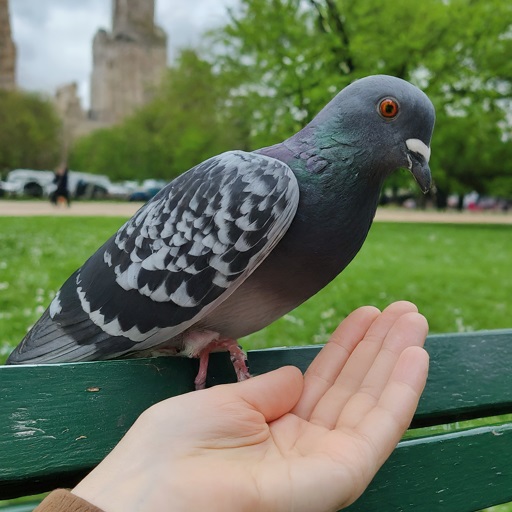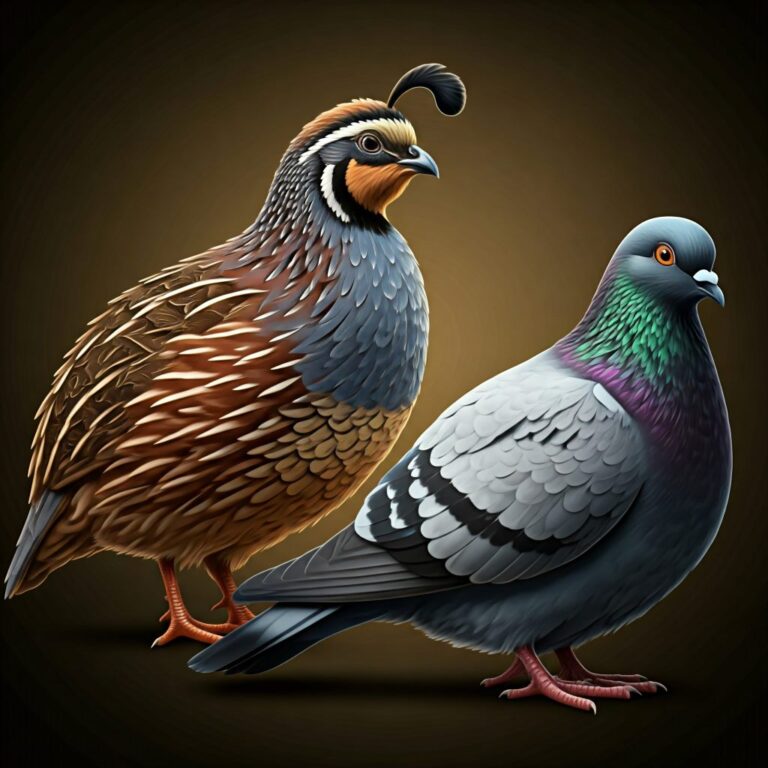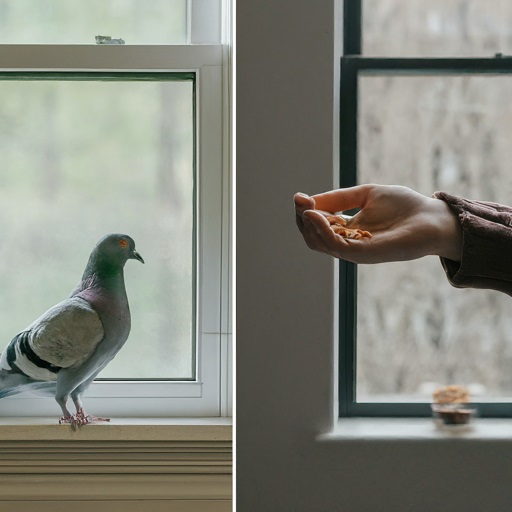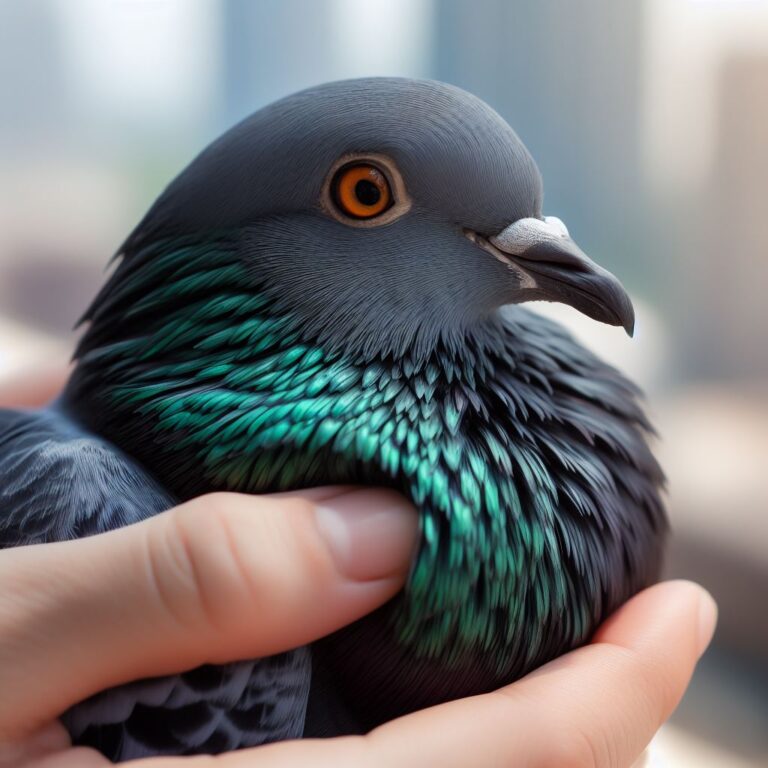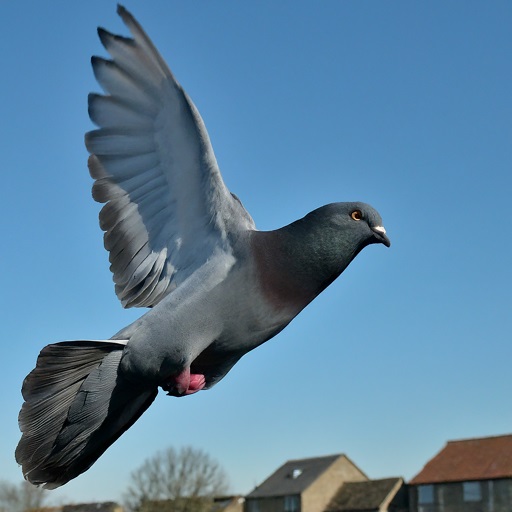Are Pigeons Bad for Your Health?
When it comes to keeping a pigeon in your home, you often wonder whether they’re bad for your health. In this article, I will answer ‘Are pigeons bad for your health’ and help you understand the ongoing debate about whether they pose any health risk to us. Further, you will be delving into the world of pigeons, exploring their potential population in urban environmental health hazards, and helpful ways to help you mitigate these issues. Further, we’ll learn whether they transmit any diseases or if there is any health reach associated with them, which is crucial to understand, especially if you live in an urban environment with lots of pigeon population. Hence, let’s start by understanding ‘Are pigeons bad for your health.’
Are Pigeons Bad for Your Health?
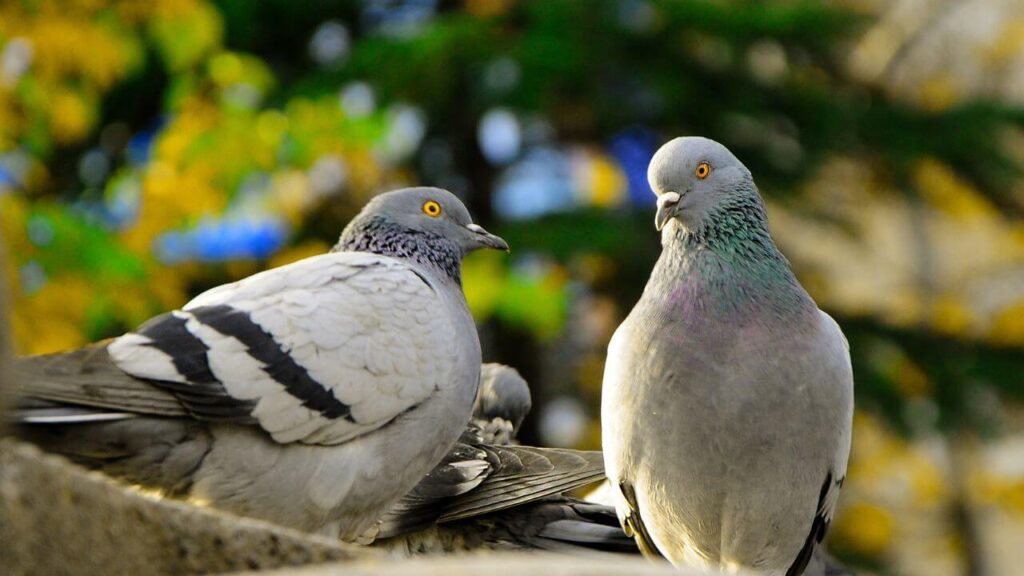
Generally, pigeons themselves are not inherently bad for your health. They are not carriers of diseases that are particularly dangerous to humans. However, their droppings may pose a slip hazard, especially if they accumulate in large quantities on walkways & other surfaces. Also, some people may be algebraic allergic to pigeon feathers or dropping, leading to further respiratory problems and skin reactions.
While researching, I also learned about the rare fungal infection histoplasmosis, which can be contracted by inhaling airborne particles from dried pigeon dropping. However, it is very uncommon & only affects people who have compromised or weakened immune systems. It is best to be aware of this. Also, they become a nuisance when they congregate in large numbers, causing damage to buildings with their droppings, nesting in unwanted areas, and competing with other Birds for resources.
This becomes a huge problem if pigeons consider building nests around or on your property. If you want to learn ‘how to stop pigeon nesting’ or ‘how to get rid of pigeon nesting,’ consider reading my articles on pigeon nesting behavior. Now you know that pigeons’ nests are considered bad for many reasons, including the accumulation of droppings & many more. To understand more, consider reading my article on ‘Why Are Pigeon Nests So Bad‘ and ‘What Happens If You Destroy a Pigeon Nest.’
Coming back to the point, a study conducted by the National Audubon Society found that the pigeon population in urban areas has witnessed a significant increment over the past few decades. This can be due to humans’ availability of food sources coupled with a lack of predators in the urban setting, contributing to this rapid population growth.
You should know that these adaptable creatures have managed to be comfortable in various settings, from public squares to rooftops, where they roost in large numbers & never mind coexisting with human settlements. As a result, human interaction with pigeons is becoming more common, leading to a mixed sentiment among City jewelers. To know more about how bad pigeons can be for your health, I am sharing three factors to consider below.
Pigeon Droppings & Air Quality
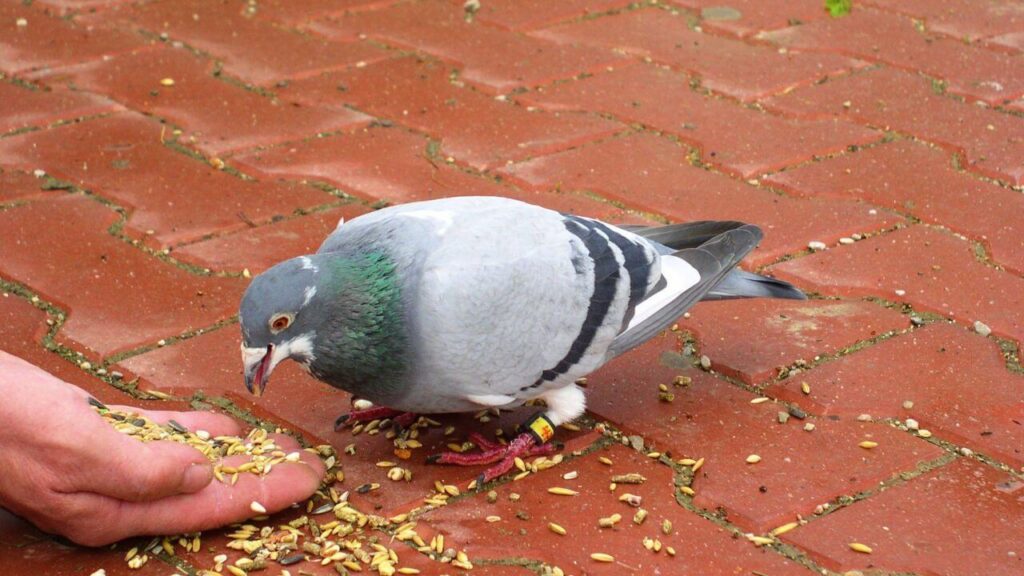
When it comes to understanding how bad a pigeon can be regarding our health, the most common concern associated with them is their droppings. The droppings may contain a combination of uric acids, faces, feathers, bacteria, & many more pathogens that may result in poor air quality when accumulated in large quantities.
A report by the United States environmental protection agency found that the build-up of droppings is known to release harmful airborne particles, which affect the surrounding air quality. This kind of contaminated air can adversely affect our health if we come into contact with or get exposed to it. This becomes a huge problem for individuals with respiratory conditions or systems. Also, another study by the Journal of Occupational & environmental medicine found that people living in areas with high pigeon populations are more likely to experience respiratory issues like asthma exacerbation.
Pigeons & Disease Transmission
Like many other Birds, pigeons are also known to be carriers of zoonotic diseases. I hope you already know what zoonotic diseases are. If not, you should know that these infectious diseases can be transmitted from animals to humans. Research by the Centre for disease control & Prevention found that pigeons may carry pathogens like Chlamydia psittaci, which can cause psittacosis. Psittacosis is also a respiratory problem & if left untreated, it will lead to severe complications. However, you should note that this disease transmission to humans is relatively rare. However, still, it is best to be aware of potential risks, especially for individuals with compromised immune systems.
Allergies & Pigeon-Related Irritants
Another thing that you need to consider is the possibility of allergies & pigeon-related irritants. Apart from the disease transmissions, your allergic reaction can get triggered by pigeon feathers & danders. This becomes a more prominent issue in individuals with sensitive immune systems or skin. According to the American College of allergy asthma & Immunology, pigeon allergens may lead to symptoms like sneezing, nasal congestion, and skin rashes. As someone who has experienced allergies firsthand, I can attest to the discomfort they can cause.
A few years ago, I used to live in my apartment with a pigeon Infestation on my roof. Even though I used to keep my windows closed, I frequently found myself struggling with allergic symptoms. Not only did I end up with lots of medication, but I also had to consider pigeon nest removal from my room. From my personal experience, I will highly advise you to address this kind of issue as soon as possible.
Preventive Measures & Mitigation Strategies
Even though pigeons are considered a part of our urban landscape, many ways can help us discourage their presence and minimize potential health risks. We can consider deterrent methods that can keep & prevent pigeons from roosting in certain areas. Below I have mentioned some of the most popular detergent methods with their effectiveness level & some notes to help you further keep this bird away & prevent any health issues.
| Deterrent Method | Effectiveness | Notes |
| Netting & Spikes | High | Prevents pigeons from roosting on ledges |
| Scare Tactics | Moderate | Temporary solution to deter pigeons |
| Pigeon Repellent Gels | Moderate | Non-toxic & safe for human use |
| Ultrasonic Devices | Low | Effectiveness may vary based on location |
| Humane Traps & Relocation | High | Encourages pigeons to relocate naturally |
If your residential property already hosts a lot of pigeon nests, I recommend you consider consulting a professional who might use human traps as well as relocation. I recommend avoiding ultrasonic devices as they can be expensive, especially if you have to place multiple ones in your properties. If you want to discourage any particular Bird from accessing any particular area of your property, you can consider installing bird netting or spikes. Also, many cities worldwide have implemented some preventive measures and have already witnessed the positive impacts on both the pigeon population & potential risk.Initiative Location Outcome Pigeon Birth Control Programs New York City Reduced pigeon population growth Roosting Site Clean-up London, UK Improved air quality in affected areas Pigeon Feeding Regulations San Francisco Decreased pigeon dependency on human food
Conclusion
Undoubtedly, having pigeons can bring a lot of joy to you & your family, but there are a few potential health risks you must consider. Also, pigeons may add charm to any urban landscape, but they also have some negative complications. I have given my best to give you in-depth knowledge & understanding of the question, ‘Are pigeons bad for your health?’.
From their dropping affecting air quality to the transmission of zoonotic disease, I have given all the information required to take necessary precautions. I will highly advise you always to adopt safe & humane deterrents while supporting public Health initiatives taken by the government or clubs to coexist with pigeons in a healthy and more balanced manner.
If you have any other concerns regarding the question ‘Are pigeons bad for your health,’ never mind commenting below. Next time, if you approach these feathered creatures, I highly recommend you appreciate their beauty while also considering their impact on our health. After all, being aware & prepared is the first step toward a safer & happier urban environment.
If you find this article helpful, then consider sharing it. Your share will help many people learn about the potential risk of being surrounded by pigeons and how bad a pigeon can be for humans. Check my other helpful guide on the care & management of pigeons as pets. See you in the next post, till then, take care & goodbye.

